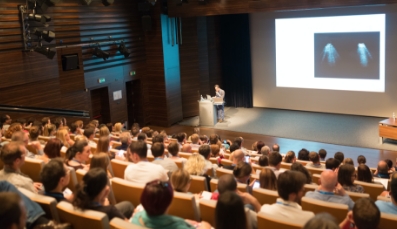
UST-KRISS School
Since its foundation in 1975, as a government-funded research institute, KRISS has carried out missions stated in Constitution of the Republic of Korea.

Since its foundation in 1975, as a government-funded research institute, KRISS has carried out missions stated in Constitution of the Republic of Korea.
As the National Metrology Institute of Korea, the Korea Research Institute of Standards and Science (KRISS) was founded in 1975 to establish national standards and conduct related research. Today, it is recognized as a world-class metrology institute. Funded by the government, KRISS strives to enhance the quality of life for citizens, drive innovation in national science and technology, and strengthen industrial competitiveness through the dissemination of global measurement standards and research on advanced measurement technology.
The UST-KRISS School aims to cultivate innovative next-generation scientists who will enhance Korea’s global presence. To achieve this goal, it conducts research with faculty composed of top scientists in the field. The UST-KRISS School, with its state-of-the-art research facilities and equipment, pursues creative interdisciplinary research and practical on-site education in two majors: precision measurement and applied measurement science. The demand-oriented curriculum and diverse student welfare systems allow students to focus on study and research on a campus harmonized with nature. The open learning environment encourages active exchange of ideas and maximizes students’ potential, laying the foundation for stronger ties with industries, schools, and research institutions. Your interest and support for the school’s efforts in nurturing world-class scientists and engineers are deeply appreciated. Thank you.
Representative Professor, Sook-Kyung Kim

This major consists of two sub-majors (nano convergence measurement, biomedical measurement) covering the field of applied measurement. The sub-major of nano-convergence measurement deals with the microscopic or extreme environment physics, materials, and equipment development. The sub-major of biomedical measurement deals with precision measurement of biomedical signals and quantities, as well as development of medical diagnostic/therapeutic devices. This major teaches and studies the field of measurement science that can be widely applied in physics, materials, chemistry, and bio/medical fields.
VISION Cultivating global talents who will lead the field of applied science and measurement
Nurturing next-generation talents who can think in convergence
| Major | Specialization |
|---|---|
| Applied Measurement Science | Nano Convergence Measurement (Natural Science) |
| Biomedical Measurement (Engineering) |
The Precision Measurement Major consists of two concentrations, Measurement Science, and Measurement Engineering. The Measurement Science is a field of science and deals with measurement principles and standards. The Measurement Engineering is an engineering field that deals with measurement sensors and systems. The major covers a wide range of fields, including length, time, luminous intensity, electromagnetic waves, space optics, atmospheric environment, ultrasound, radiation, food and bioanalysis.
VISION Training of industry-innovative measurement experts for the 4th industrial revolution
Multidisciplinary education to solve problems in the field
Research on future measurement technologies for leading-edge industries
| Major | Specialization |
|---|---|
| Precision Measurement | Measurement Engineering (Engineering) |
| Measurement Science (Natural Science) | |
| Participation Major | Quantum Information |
| Advanced Bioconvergence |
As of January 2025
| Major | Specialization | Faculty | Adjunct Faculty |
|---|---|---|---|
| Precision Measurement | Measurement Engineering | 21 | - |
| Measurement Science | 18 | - | |
| Subtotal | 39 | - | |
| Applied Measurement Science | Nano Convergence Measurement | 20 | 2 |
| Biomedical Measurement | 8 | 1 | |
| Subtotal | 28 | 3 | |
| Participation Major | 5 | - | |
| Total | 72 | 3 | |
As of January 2025
| Current Students | Graduates | |
|---|---|---|
| Doctoral Program | 29 | 66 |
| Integrated/Masters Program | 38 | 134 |
| Total | 67 | 200 |
End Feb-Early Mar/
End Aug-Early Sep
Early Mar-Mid Apr/
Early Sep-Mid Oct
Mid May/
Mid Nov
Mid Jun/
Mid Dec
※ The selection procedure and schedule are subject to change every semester. Please refer to the UST Admissions website for details.





등록된 퀵메뉴가 없습니다.